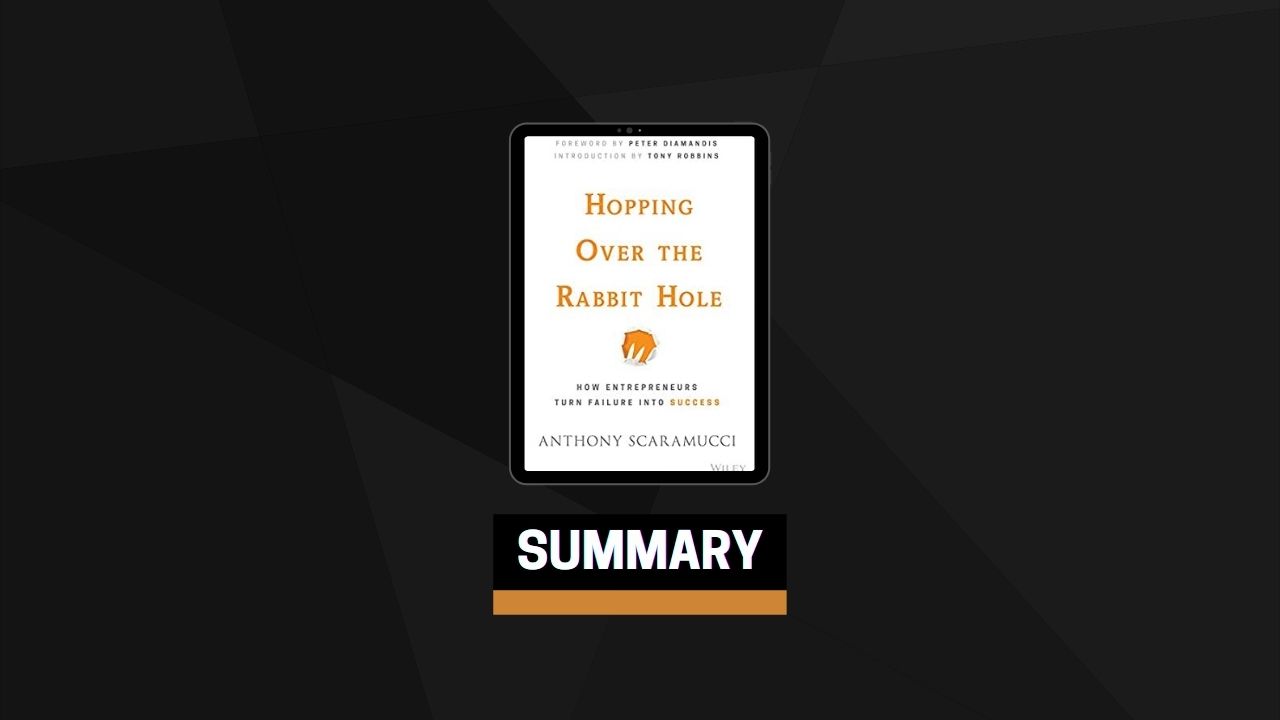Reflect and Learn
Mistakes and failures can be the most valuable resources for an entrepreneur.
Success glosses over weakness. Adversity exposes it and provides an opportunity to learn from it and work on it. When you do something right, there is a positive feedback loop that makes you feel invincible. When you do something wrong, you learn important lessons about yourself and the people around you. It’s like a baseball team that plays with sloppy fundamentals on defense, but wins a stretch of games because of their ability to hit home runs. One day, the long ball will abandon you and the shoddy foundation will be exposed.
You should never regret making mistakes. Instead, value the lessons you learn from your inevitable failures. After all. If you’re not making mistakes, you are probably not pushing yourself far enough.
There Is No Such Thing as a Free Lunch
However difficult you think starting a business will be, multiply that by 15 to get a realistic approximation.
never expect entrepreneurship to be easy. It may well be rewarding, but it won’t be easy.
In business, nothing worthwhile ever comes easy. What the media fails to tell you about overnight success stories is all the anxiety about meeting payroll and endless round-the-clock hours working on a project. The grind is constant.
Focus on Risk Relative to Reward
Every investment has potential return and inherent risk. In today’s highly efficient and innovative marketplace, barriers to entry are high, and slam-dunk business ideas are few and far between. As an investor or entrepreneur, it is your job to seek the highest possible risk-adjusted returns.
Novice investors focus first and foremost on the potential payoff while seasoned entrepreneurs pay more attention to the possible downside. That’s not to say successful professionals are pessimistic—quite the contrary. But, savvy investors never put themselves in a position where their livelihood will be destroyed if something goes wrong. Aspiring business owners dream of the new BMW, the big house, and the private jet, while successful pioneers are motivated by the desire to build something and solve problems.
Focus on Process More than Outcome
There are essential truths to becoming a successful entrepreneur. It requires hard work, sacrifice, strategic thinking, and risk-taking . . . to name a few. It also entails formulating an efficient process and a seamless execution strategy. But, perhaps more importantly, being an entrepreneur requires a level of acceptance. Things are never what they seem, especially when you start your own business. So the golden rule: If you are afraid of failure, don’t become an entrepreneur. Rabbit holes are inevitable. Its how you hop over them that will define your success.
Don’t Think You Can Do It Alone
The average new business fails within five years. In the very beginning, you cannot usually hire a group of people and pay them all a ton of money without establishing the viability of your business model. But, you need to hire like-minded, driven people who believe in the vision of the company and complement your skill-set. Making sure you put the right people in place is one of the most important things you can do when you’re starting a business.
Don’t Overcomplicate Your Idea
Simplicity has always been the lifeblood of entrepreneurs. If you’re looking for the next great idea, perhaps you are looking too hard. Perhaps the next great invention is right in front of your eyes. Most great entrepreneurs are less Einstein and more MacGyver, skilled at improvisation and seeing the world through a creative lens. Take Howard Schultz, founder & CEO of Starbucks, for example, who essentially repackaged something so familiar—coffee—into a $100 billion business and turned a painstakingly simple idea into a cultural phenomenon.
You Don’t Need to Be Right All the Time
As any couple will tell you, the key to a happy marriage isn’t always about who’s right and who’s wrong; it’s about working together. You’re going to be right sometimes, and you’re going to be wrong more often. How you manage your relationship with your partner or spouse will go a long way in determining how well it works. There is only one type of unconditional and asymmetrical relationship in the world, and that is between a parent and a child. All other relationships are conditional, and in order for them to be successful, they need symmetry. The best relationships have reciprocity. You don’t always need to be right. When faced with a disagreement, partners should find the lowest common denominator to refocus on their purpose and mission.
Communication Is Key
People can do some amazing things, but they can’t read minds. A lack of communication is often the starting point for the breakdown in a relationship. The more uncomfortable the conversation seems, the more important it is to have. It doesn’t need to be a formal meeting. You just need to have an honest conversation.
Three Approaches to Negotiation
The Hammer & Chisel Approach
One strategy for negotiations is the hammer-and-chisel approach. It’s the old-school tactic that is probably familiar to you. With this approach, you try to extract every ounce of surface value out of the negotiation. Apply relentless pressure and intimidation until you get what you want. Every dollar counts, and every percentage point counts. The tactic is common across all industries and careers.
People who thrive in hammer-and-chisel negotiation are hardwired for conflict and predisposed to enjoy psychological warfare. Their ability to get one over on someone validates their existence. If you’re tempted to take this approach, step back and look at the bigger picture because you would most likely be better served by a softer approach. In fact, people using this tactic are sometimes rich but always miserable.
Roger Fisher Model
Before entering into any negotiation, you must always determine what Fisher called the Best Alternative to a Negotiated Agreement (BATNA). Essentially, your BATNA is your backup plan in case your negotiating partner tells you to kick rocks. If you’re negotiating to buy a Toyota Camry that is listed at $10,000, but know you can get a comparable Honda Accord for $9,000, that is your BATNA. What can you fall back on if the other person walks away from the negotiation? Basically, you should be willing to accept any agreement that represents an improvement from your BATNA. In business, you should always work to improve your BATNA. Never get backed into a corner where you’re desperate, or else your negotiating power will be greatly diminished.
The Li Ka-shing Approach
when you enter negotiations, have goals beyond simple metrics. It’s not just about winning. It’s about creating a bond of trust and forging a symbiotic relationship. Interpersonal relationships are way more valuable than money—they are the central axiom to our existence.
approach. It’s about assessing a situation and erring on the side of generosity. To use a metaphor
it’s about growing the size of the pie, not about fighting over the size of your slice. One of the keys to negotiation is that you want to get the other person to return to the table to do business with you.
Don’t Hire Quarterbacks, Hire Linemen
In business, you can take a team of a modestly intelligent people and achieve more than the work of a group of extremely smart individuals pulling in different directions. The key is putting together a team with complementary skill-sets and a collective spirit. You need people who don’t care who gets the credit. Your job as a leader and entrepreneur is to assemble these teams and put people in a position to succeed.
The best companies reward people who can be selfless at the top and are willing to subordinate their egos for the betterment of the team. Success requires an understanding that championships can only really happen with a well-rounded, self-sacrificing team.
Here are some valuable guidelines for building a winning team.
Soap & Deodorant
Get people close. Physically close. Believe in Michael Bloomberg’s “swamp tank” model, where people are forced to communicate openly in close quarters.
Fire First, Ask Questions Later
Managers have to send the message that backbiting will not be tolerated within the organization.
Hire Entrepreneurial People
In business, you can either refuse to change and get “Blockbustered,” or you can “pull a Netflix” and be entrepreneurial, evolve, and hop over the inevitable rabbit holes that you encounter.
Learn from the Best and Bravest
Study elite people and organizations. Look at the Amazons and Apples of the world. Study entrepreneurial icons like Mark Cuban, Arianna Huffington, Jack Welch, and Elon Musk.
Marketing Takes Courage
To be an effective marketer, you have to be willing to take chances and to live with the consequences of those decisions. There will always be journalists and Internet trolls who take a dim view of you and your business. Who cares? Fight through that anxiety and self-consciousness to be bold.
Here are four rules to help you boldly—and, somewhat, unconventionally—market your firm to your target audience.
Rule 1: Get Out There and Talk to the Press
If you become a meaningful player in the industry, the press is going to cover you one way or another. Define the narrative; don’t let it define you. The best way to shape the media’s view of you is to engage them. Appearing on television and being quoted in stories only reinforces your credibility.
Rule 2: Focus on What Makes You Different
Whatever business you’re in, don’t follow the status quo. Come up with original ideas to solve problems for customers, and constantly highlight the differentiating factor that separates you from your competitors.
Rule 4: Take a Portfolio Manager’s Approach to Marketing
Just as every stock in your portfolio won’t go up all the time, not every marketing idea works. When you’re trying to think outside the box and be creative, it’s inevitable you’ll have missteps along the way. As with investing, the important thing is that you recognize a loser early and cut bait. However, fear of failure shouldn’t prevent you from taking chances. It simply means you have to hedge your bets.
Practice Like You Play
If you don’t believe you are enough, you’re never going to get to where you want to be. Entrepreneurship is a form of artistry, and being an artist requires belief. Success requires luck, opportunism, and a dollop of intelligence, but more than anything, it requires conviction that you will do what it takes to get the job done. That you will courageously stare the inevitable failures in the face and strategically hop over the many rabbit holes that you will encounter. The hard work and tireless commitment should never stop.
It is your attitude that will make you.
Start a business. Follow your dreams. If you put your mind to it, you’ll be enough.


